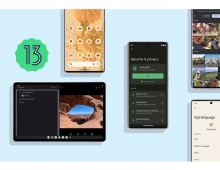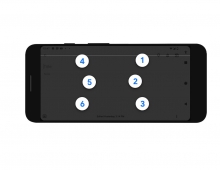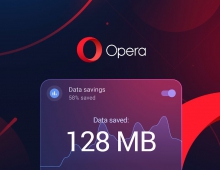
Android Will Be the #2 Mobile Operating System by 2013, Report Says
By 2013, IDC forecasts that worldwide shipments of smartphones will surpass 390 million units, growing at a compound annual growth rate (CAGR) of 20.9% for the 20092013 forecast period.
In a market that was once dominated by a handful of pioneers, such as BlackBerry, Symbian, and Windows Mobile, newcomers touting open standards (Android) and intuitive design and navigation (Mac OS X and webOS) have garnered strong end-user and handset vendor interest, the IDC report claims.
"Mobile operating systems have become the key ingredient in the highly competitive mobile device market. Although the overall look and feel of the device will still play an important role in the buying process, the wrong choice of operating system coupled with an awkward user interface can mean the difference between success and failure," says Stephen D. Drake, vice president, Mobility and Telecom.
According to the latest IDC market outlook, Symbian will retain its leadership position worldwide throughout the forecast period. Due primarily to the strength of Nokia in markets outside of the United States, Symbian continues to lead all other mobile operating systems.
Android will experience the fastest growth of any mobile operating system, the report claims. Starting from a very small base of just 690,000 units in 2008, total Android-powered shipments will reach 68.0 million units by 2013, making for a CAGR of 150.4%. Android will benefit from having a growing footprint of handset vendors supporting it and will finish second to Symbian in shipments by 2013, the report indicates.
Linux and webOS shipments will struggle throughout the forecast period. Shipments of Linux-powered devices will trend down due to greater emphasis on the Android platform but will not disappear entirely as some vendors will continue to support it. Palm's webOS, despite growing steadily, will capture limited market share due to limited deployment and availability of devices across multiple carriers.
"Mobile operating systems have become the key ingredient in the highly competitive mobile device market. Although the overall look and feel of the device will still play an important role in the buying process, the wrong choice of operating system coupled with an awkward user interface can mean the difference between success and failure," says Stephen D. Drake, vice president, Mobility and Telecom.
According to the latest IDC market outlook, Symbian will retain its leadership position worldwide throughout the forecast period. Due primarily to the strength of Nokia in markets outside of the United States, Symbian continues to lead all other mobile operating systems.
Android will experience the fastest growth of any mobile operating system, the report claims. Starting from a very small base of just 690,000 units in 2008, total Android-powered shipments will reach 68.0 million units by 2013, making for a CAGR of 150.4%. Android will benefit from having a growing footprint of handset vendors supporting it and will finish second to Symbian in shipments by 2013, the report indicates.
Linux and webOS shipments will struggle throughout the forecast period. Shipments of Linux-powered devices will trend down due to greater emphasis on the Android platform but will not disappear entirely as some vendors will continue to support it. Palm's webOS, despite growing steadily, will capture limited market share due to limited deployment and availability of devices across multiple carriers.





















